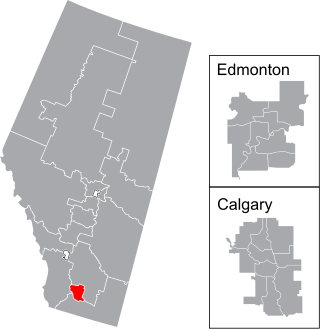The Progressive Party of Canada, formally the National Progressive Party, was a federal-level political party in Canada in the 1920s until 1930. It was linked with the provincial United Farmers parties in several provinces, and it spawned the Progressive Party of Saskatchewan, and the Progressive Party of Manitoba, which formed the government of that province. The Progressive Party was part of the farmers' political movement that included federal and provincial Progressive and United Farmers' parties.
There have been various groups in Canada that have nominated candidates under the label Labour Party or Independent Labour Party, or other variations from the 1870s until the 1960s. These were usually local or provincial groups using the Labour Party or Independent Labour Party name, backed by local labour councils made up of many union locals in a particular city, or individual trade unions. There was an attempt to create a national Canadian Labour Party in the late 1910s and in the 1920s, but these were only partly successful.
Liberal-Progressive was a label used by a number of candidates in Canadian elections between 1925 and 1953. In federal and Ontario politics there was no Liberal-Progressive Party, as such. The term generally referred to candidates endorsed by Liberal and Progressive constituency associations or to individual candidates who claimed the label, sometimes running against a straight Liberal or straight Progressive candidate. In Manitoba, a party existed with this name provincially, and Liberal-Progressives ran federally in Manitoba under the leadership of Robert Forke, with the support of the Liberal Party.

The United Farmers of Alberta (UFA) is an association of Alberta farmers that has served different roles in its 100-year history – as a lobby group, a successful political party, and as a farm-supply retail chain. As a political party, it formed the government of Alberta from 1921 to 1935.

Brandon—Souris is a federal electoral district in Manitoba, Canada, that has been represented in the House of Commons of Canada since 1953.
The Patrons of Industry in Manitoba was an extension of a farmers' organization operating in Ontario and the United States in the 1880s and 1890s. The Patrons lobbied extensively and became politically active, running provincial and federal candidates.

Saint John—Rothesay is a federal electoral district in southern New Brunswick, Canada. With its predecessor ridings, St. John—Albert and Saint John—Lancaster, the area has been represented in the House of Commons of Canada since 1917.
James Arthur Ross was a Manitoba politician. He served in the House of Commons of Canada for thirteen years, and was a candidate for the leadership of the Progressive Conservative Party of Manitoba in 1953.
Mervin C. Tweed is a retired politician in Manitoba, Canada. He represented Brandon—Souris in the House of Commons of Canada from 2004 to August 31, 2013. Prior to that he was a member of the Legislative Assembly of Manitoba from 1995 to 2004, representing the constituency of Turtle Mountain. He was the president of Omnitrax, the American rail company responsible for the Churchill rail line.
Winnipeg North Centre was a federal electoral district in Manitoba, Canada, that was represented by a Member of Parliament (MP) in the House of Commons of Canada from 1925 to 2004. It is a largely working class riding in Winnipeg and has traditionally had a large Jewish and immigrant population.

Robert Forke, was a Canadian politician. He was elected as Member of Parliament for Brandon in 1921. In 1922, he replaced Thomas Crerar as leader of the Progressive Party of Canada. Forke served as a cabinet minister in the government of William Lyon Mackenzie King.

Athabasca is a provincial electoral district for the Legislative Assembly of Saskatchewan, Canada. It is located in the extreme northwest corner of the province. The major industries are tourism, mineral extraction, forestry, commercial fishing and trapping. The Cluff Lake uranium mine is located in this constituency, as well as the Athabasca Sand Dunes Provincial Park and the Clearwater River Provincial Park. The major communities are La Loche, Île-à-la-Crosse and Buffalo Narrows with populations of 2,136, 1,268 and 1,137 respectively.

Lethbridge is a federal electoral district in Alberta, Canada, that has been represented in the House of Commons of Canada since 1917. It incorporates the City of Lethbridge and Lethbridge County.
Souris was a federal electoral district in the province of Manitoba, Canada, that was represented in the House of Commons of Canada from 1904 to 1953.
Neepawa was a federal electoral district in Manitoba, Canada, that was represented in the House of Commons of Canada from 1917 to 1949.

David Wilson Beaubier was a Canadian politician. Beaubier ran in the elections of 1925 and 1926 but lost both to Robert Forke. He was elected to the House of Commons of Canada in the 1930 election as a Member of the historical Conservative Party for the riding of Brandon. He was re-elected in 1935. Prior to his federal political experience, he was a Lieutenant-Colonel during World War I in which he led the 181st Battalion, CEF into England in 1916.
Portage la Prairie was a federal electoral district in Manitoba, Canada, that was represented in the House of Commons of Canada from 1904 to 1949.

The article is the electoral history of Arthur Meighen, the ninth prime minister of Canada.

This article is the electoral history of William Lyon Mackenzie King, the tenth Prime Minister of Canada. A Liberal, he was Canada's longest-serving prime minister, with three separate terms as prime minister, for a total of 21 years and 154 days. He defeated Prime Ministers Arthur Meighen and R.B. Bennett at different times, and was succeeded by Prime Minister Louis St. Laurent in 1948.